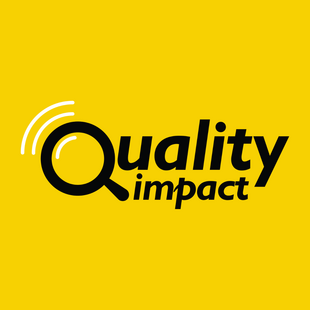
Bridging quality management and Lean construction principles
Progress indicator

Lean construction specialist and civil engineer Reynald Miasis examines how quality management and Lean construction principles align to reduce waste and improve quality.
The Lean construction principles, as outlined by Glenn Ballard and Gregory Howell in their 1994 work Lean Construction: A New Paradigm for Managing Construction Projects, are highly compatible with recognised quality management methods.
In Lean management, quality is defined as fulfilling client needs with zero defects, a philosophy reinforced in Jeffrey Liker's The Toyota Way (2004). It champions continuous improvement (Kaizen) and emphasises the importance of real-time feedback and corrective actions.
Shared goals
Despite emerging from different methodologies, quality management and Lean construction principles have a shared objective: to enhance efficiency, minimise waste, and ensure that the final product meets or surpasses customer expectations.
Both methods emphasise continual improvement, proactive issue resolution and customer satisfaction. The intersections of quality management and Lean construction principles can greatly improve project performance.
1. Continual improvement (Kaizen and Plan, Do, Check, Act cycle)
Continual improvement is a cornerstone of both Lean construction and quality management. In Lean construction, this is represented by Kaizen, which promotes gradual improvements on an ongoing basis. Similarly, quality management frameworks, such as the Plan, Do, Check, Act (PDCA) cycle, advocate for the continuous evaluation and refinement of processes. Both methodologies emphasise the importance of regularly assessing and optimising work to enhance output quality.
2. Waste reduction and efficiency
Lean construction emphasises eliminating waste and improving efficiency across resources – time, materials and labour. This directly aligns with quality management’s objective of reducing defects and improving processes. Both Lean and quality management aim to reduce rework and defects, ensuring that project resources are used effectively. By identifying and addressing waste, both approaches contribute to a smoother, more efficient construction process.
3. Standardisation and process control
Standardised processes are essential to Lean construction, which aims to improve efficiency and reduce variation. Similarly, quality management relies on standard operating procedures to ensure work meets specifications. Standardisation in both approaches helps reduce variation and errors, leading to higher-quality outcomes.
"Despite emerging from different methodologies, quality management and Lean construction principles have a shared objective: to enhance efficiency, minimise waste, and ensure that the final product meets or surpasses customer expectations."
4. Client-centric focus
Both Lean construction and quality management are primarily client-focused. Quality management ensures that the delivered product meets client requirements, while Lean construction focuses on value delivery by eliminating non-value-adding activities. By aligning both practices around client needs, projects are more likely to meet or exceed client expectations.
5. Collaboration and teamwork
Collaboration is important to both Lean construction and quality management. Lean construction promotes team collaboration to identify and solve problems, enhance communication and share best practices. Similarly, quality management encourages teamwork to monitor quality metrics, conduct root-cause analyses and implement corrective actions. Both approaches recognise the importance of stakeholder engagement in improving processes and achieving project goals.
6. Data-driven decision-making
Both Lean construction and quality management use data to drive decision-making. Lean construction uses performance metrics such as cycle times and lead times to monitor project progress, while quality management tracks defect rates, inspection results and client feedback. Integrating data-driven decision-making ensures that project teams can make timely, informed adjustments to improve quality and performance.
7. Root-cause analysis and problem-solving
Root-cause analysis is a critical tool in both Lean and quality management to identify and address the underlying causes of issues. Techniques such as the Ishikawa (Fishbone) Diagram and Pareto analysis help teams to pinpoint inefficiencies and implement corrective actions to prevent recurrence. The focus on root causes in both methodologies strengthens the project’s ability to resolve issues proactively and continuously improve processes.
8. Standardised quality metrics
Both Lean construction and quality management integrate key performance indicators to track and monitor project success. Lean metrics, such as right first time and rework rates, align with quality management metrics that track defects and process compliance. The use of clear, measurable goals in both approaches ensures that quality is consistently maintained throughout the project lifecycle.
Conclusion
Integrating Lean construction principles with quality management strategies produces a strong synergy that improves project results, increases efficiency, and encourages continual improvement. Although they originate from different methodological backgrounds, both approaches align on essential principles like waste minimisation, standardisation, teamwork, and client satisfaction.
By incorporating these common values, construction teams can promote a culture of excellence and consistently deliver results that go above and beyond expectations, and adjust more efficiently to the changing requirements of the industry. Adopting this integrated strategy leads to more intelligent, sustainable, and value-focused construction methods.
Visit the Quality Learning Hub
If you want to learn more on a range of quality and audit subjects, head to the Quality Learning Hub.
Quality World

Get the latest news, interviews and features on quality in our industry leading magazine.
The latest from the CQI Podcast

Listen to the Quality Impact podcast, where experts share insights on the evolving role of quality across industries.
Become an event partner for Quality Live 2025
Raise your organisation's profile with our audience of international quality and auditing professionals


